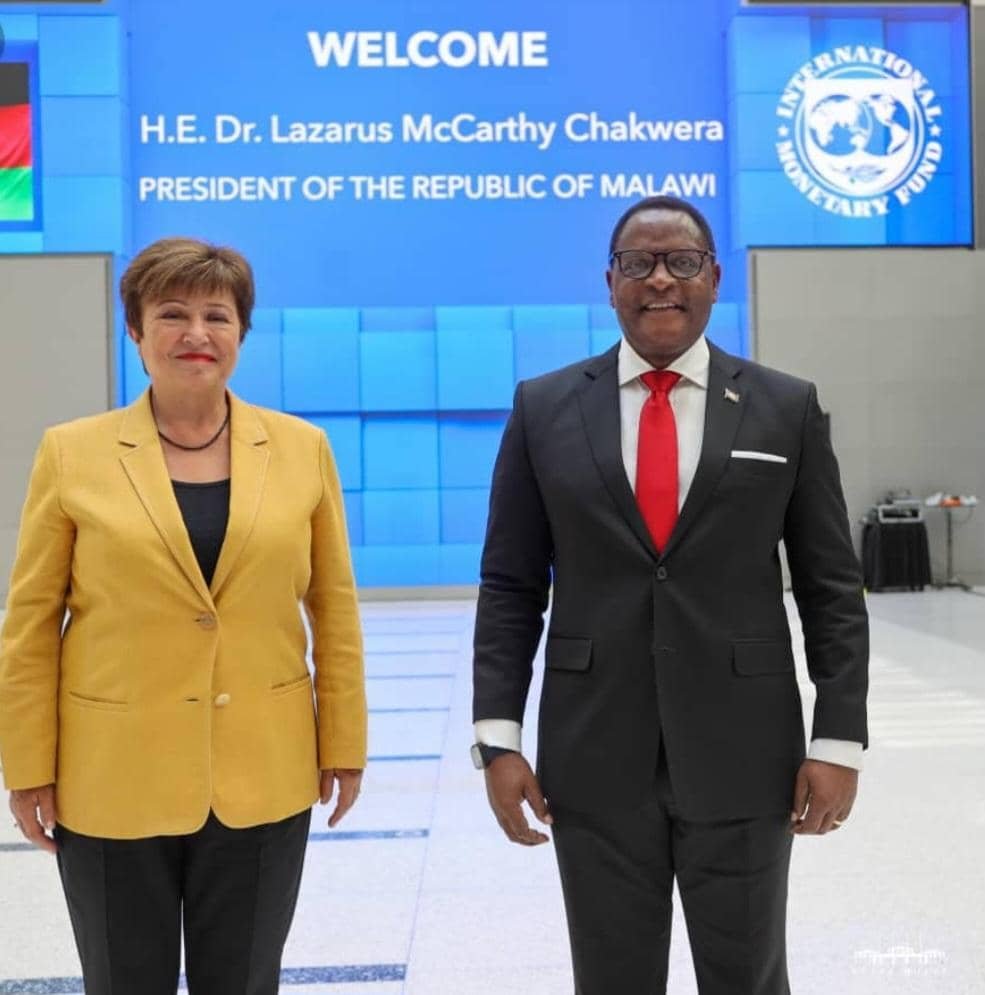By Chikumbutso Mtumodzi, Dowa
In October 2022, Minister of Finance Sosten Gwengwe said he was upbeat that Malawi would fulfill all the conditions to access the all elusive Extended Credit Facility (ECF) with the International Monetary Fund (IMF).
As a short term measure, Malawi fulfilled conditions to access the Rapid Credit Facility (RCF), something like a downgraded version of ECF, which allowed the country to access half of the money in the facility as it works towards getting the full facility. The RCF was around $88 million.
These funds helped Malawi deal with some of its teething challenges that it was facing in the last quarter of 2022 such as lack of fuel and forex.
In an interview with the media that time, Finance Minister Gwengwe said the RCF is a newly introduced package from IMF designed to help poor countries such as Malawi deal with their immediate challenges as they wait for the IMF Board to approve their full ECF.
Fast track to last week, the IMF’s Executive Board discussed the first review of the 12-month Staff-Monitored Program for Malawi. This is the next leap that the IMF has taken towards approving a full ECF for Malawi, which will most likely see this country access the remaining funds in its ECF.

ANOTHER THING COMING FOR DOUBTERS
For those that doubted the ability of President Lazarus McCarthy Chakwera and his MCP-led government to balance the Malawian economy and set it on the path to recovery, they must have another thing coming.
For any government to qualify for ECF, there are comprehensive economic factors that it must achieve such as debt restructuring, fiscal discipline and others. It is not an easy process.
It means Malawi has demonstrated exceptional policy commitment that included structural reforms to address institutional and economic weaknesses whilst maintaining macroeconomic stability.
Malawi has also been asked to address its unsustainable public debt, which the Minister of Finance, Sosten Gwengwe, said the country is fixing by among other things engaging a French-based financial consultant and debt advisor to help the address the issue.
The disbursement of the facility is also conditional on the observance of a quantitative performance criteria that is critical to achieving the program. These measures are supposed to be achieved holistically and assessed through predetermined benchmarks.
IMF COMMENDS AUTHORITIES’ ZEAL
To sum up the efforts of President Lazarus Chakwera and his government, the IMF said although Malawi’s performance has been mixed, the authorities in the country are doing all they can to address the challenges and continue to commit to agreed macroeconomic adjustment path and policy reforms.
It added that the Malawi Government is taking corrective actions necessary to demonstrate its capacity to implement the agreed macroeconomic adjustments and reforms, as well as to build the policy track record needed to support its prospective request for an Extended Credit Facility (ECF) arrangement.
With this it is only a matter of time before Malawi can access the remaining chunk of the ECF facility, most likely by the end of this year or early next year.
The Chakwera government’s efforts on the Extended Credit Facility are contrary to what was happening under the previous DPP government.
In 2020, the IMF cancelled a planned US$70 million in loans to Malawi after it came to light that former President Peter Mutharika gave the lender false information about how ECF funds were being used.
The investigations into the matter last year led to the arrest of the former Governor of Reserve Bank of Malawi, Dalitso Kabambe, and former Finance Minister Joseph Mwanamveka.
In 2021, President Chakwera warned that the road ahead is long, winding and bumpy before arriving to the promised paradisal. This is what he meant because fixing the country is about clearing the mess created by the previous DPP government.
President Chakwera promised Malawians he would devote his time and energy to make corrections to the multiple systemic problems that had ruined the country’s economy, taxes, infrastructure, nationhood, institutions, and the public services saying there is need to make serious sacrifices in order to nurse Malawi’s failing economy back to health.
The ECF is thus one of the programs that can help bail Malawi out of its dire economic straits because in order to satisfy the ECF conditions, it means the country must also have satisfied various other conditions needed to put the country on an economic recovery path, and ultimately raise the living standards for all Malawians.
*The author is writing in his personal capacity*


